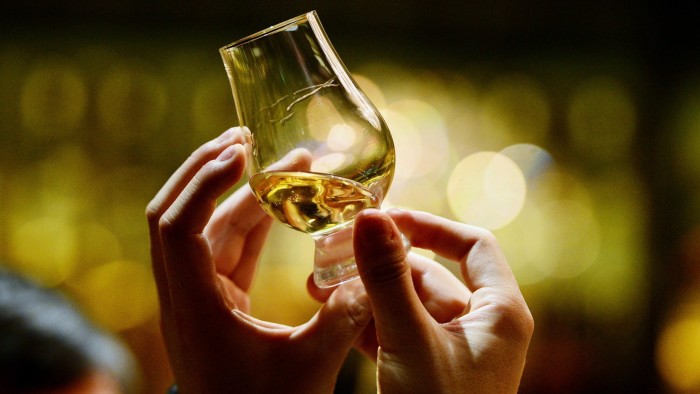Unlock the Editor’s Digest for free
Roula Khalaf, Editor of the FT, selects her favourite stories in this weekly newsletter.
Plans by Westminster to certify English single malt whisky have been branded “sabotage” by Scottish politicians who fear it will undermine one of their core export industries.
A consultation was launched this week on the proposals that would allow whisky distilled in England to be classed as “single malt”, and afforded the same geographical branding as its Scottish rival.
Manufacturers seek protected geographical status, which has been given to products such as champagne and Cornish pasties, as a mark of quality and authenticity, allowing for premium pricing.
“This is an act of sabotage and is yet another blatant attack on one of Scotland’s key industries by a Labour government that simply doesn’t care,” said Graham Leadbitter, the Scottish National party MP for Moray West, Nairn and Strathspey, a constituency that is home to a third of Scotland’s whisky distilleries.
He said the proposal “completely undermines” the $5.4bn Scotch whisky sector. “Sir Keir Starmer must end these damaging plans now,” he added, referring to the UK prime minister.
On Thursday first minister John Swinney said the Scottish government would make “all necessary representations to protect the identity and the character of Scotch whisky”.
The Scotch Whisky Association also warned the application would undermine the pedigree and title of “single malt”.
Scotch requires the malt grains to be mashed, fermented and distilled all at the same site in order for the drink to qualify for the classification. However, the English application only requires the whisky to be distilled at one site to receive “single malt” grade.
It would be “very damaging” for English whiskies to be able to describe their spirit as “single malt” despite being produced in a different manner to the “long-standing traditions” of the Scotch whisky industry, the SWA warned.
“In short, it allows wash (fermented liquid) to be tankered in from other sites,” the SWA added. “It would break the fundamental connection with place, which is the central element of single malt.”

The English Whisky Guild, established in 2022 and with 26 member distilleries, said its application was consistent with the US, which produces whiskey, and aligned with the single malt Welsh whisky geographical indication.
“These differing standards support the creation of quality whisky while fostering innovation and differentiation in each country,” said chief executive Morag Garden.
The body said it would work with Defra, as well as the SWA and other parties to ensure “robust” standards for English whisky.
The whisky row comes as the Scottish industry, a vital export for Scotland and the UK, faces turbulent global conditions that have dented recovery from the Covid-19 pandemic, with higher input costs and subdued demand leading to overstocked warehouses.
Scotch whisky exports fell 3.7 per cent to £5.4bn in 2024 as distillers warned of continued pressure on consumer spending this year, according to the SWA.
Single malt exports were down 17 per cent at £1.7bn over the same period, while overall export volumes were up, reflecting “the changing trends in global consumer preferences” as many drinkers shift towards cheaper whisky. Scotch makes up 99 per cent of all single malt consumed in the UK and 93 per cent of internationally traded single malt whiskies.
The SWA called on the UK government to mitigate growing domestic pressures on the industry, including reducing excise duty that sees 70 per cent of the average priced bottle now collected in tax. The industry body has also criticised UK chancellor Rachel Reeves’ decision to increase duty on spirits, claiming it broke the prime minister’s commitment to “back Scotch producers to the hilt”.
Emma Harper, SNP MSP and deputy convener of the cross party group on scotch whisky, described the move as “outrageous”. “It would destroy Scotland’s whisky industry and result in a loss of jobs and exports,” she said.







